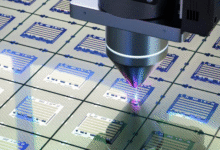Mutf_In: Moti_Oswa_Sp_1i4pbvn

Mutf_In: Moti_Oswa_Sp_1i4pbvn offers a unique approach to enhancing user experience through its customizable interface and efficient workflow management. By streamlining task prioritization, it aims to boost productivity while facilitating collaboration among teams. The platform’s adaptability to user feedback suggests a commitment to continuous improvement. However, its true impact on team dynamics and individual empowerment warrants further examination. What specific features contribute most to these outcomes?
Key Features of Mutf_In
Mutf_In presents a range of key features that enhance its functionality and user experience. Notably, its user-friendly interface allows users to navigate seamlessly, reducing barriers to engagement.
Additionally, customizable settings empower individuals to tailor their experience according to personal preferences, promoting a sense of freedom and control.
These features collectively contribute to a versatile platform that meets diverse user needs efficiently.
Enhancing Productivity With Mutf_In
While many platforms offer tools for productivity, Mutf_In stands out by integrating features that streamline workflows and enhance efficiency.
Its emphasis on time management allows users to prioritize tasks effectively, while innovative workflow optimization tools reduce redundancies.
Fostering Collaboration Through Mutf_In
Collaboration thrives within environments that foster open communication and resource sharing, and Mutf_In excels in this regard.
By integrating collaborative tools, Mutf_In enhances team engagement, enabling members to exchange ideas seamlessly. This platform encourages active participation, breaking down silos and promoting a culture of cooperation.
The result is a dynamic workspace where innovation flourishes, and collective problem-solving becomes the norm.
Adapting Mutf_In to User Needs
A significant aspect of enhancing user experience within Mutf_In lies in its ability to adapt to diverse user needs.
This adaptability is facilitated through extensive customization options, allowing users to tailor functionalities to their preferences.
Moreover, incorporating user feedback into the design process ensures that Mutf_In continuously evolves, aligning itself with the dynamic demands of its user base, fostering a sense of autonomy and satisfaction.
Conclusion
In an era where efficiency is often pursued yet seldom achieved, Mutf_In stands as a paradoxical beacon of productivity and collaboration. While it promises to streamline workflows and enhance user engagement, one must wonder if such a platform can truly overcome the inherent chaos of modern work environments. Ultimately, the success of Mutf_In hinges not on its features, but on users’ willingness to embrace change—an irony, considering that true innovation often requires more than just a sophisticated tool.







